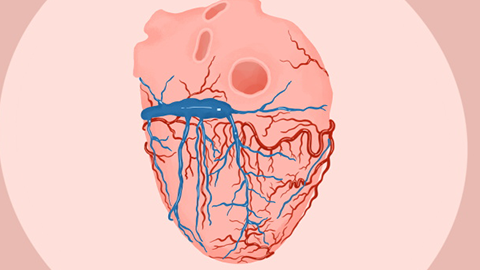What vegetables are good to eat for atherosclerosis?
Generally, atherosclerosis refers to arteriosclerosis. For atherosclerosis, it is better to eat foods such as onions, black fungus, broccoli, spinach, and carrots. If discomfort symptoms occur, it is recommended to seek timely medical treatment. The specific analysis is as follows:

1. Onion
Onions are rich in sulfides, prostaglandin A, and various vitamins and minerals. Among them, prostaglandin A has the function of dilating blood vessels, reducing peripheral vascular resistance, and lowering blood lipids, which helps prevent the progression of atherosclerosis.
2. Black fungus
Black fungus is rich in dietary fiber, polysaccharides from black fungus, and minerals such as iron and calcium. Dietary fiber helps lower blood cholesterol levels and reduce lipid deposition on the blood vessel walls. Black fungus polysaccharides have anticoagulant and antiplatelet aggregation effects, which can prevent the formation of blood clots.
3. Broccoli
Broccoli contains abundant vitamin K, flavonoids, and sulforaphane. Vitamin K helps deposit calcium in bones rather than in the blood vessel walls, reducing vascular calcification; flavonoids can prevent infections, lower cholesterol oxidation, inhibit platelet aggregation, and protect vascular endothelial cells; sulforaphane has strong antioxidant and anti-inflammatory effects, which can reduce vascular inflammation and delay the progression of atherosclerosis.
4. Spinach
Spinach is rich in nutrients such as vitamin C, vitamin E, folic acid, and iron. Vitamin C and vitamin E are antioxidants that can scavenge free radicals and reduce vascular endothelial cell damage; folic acid can lower homocysteine levels, as elevated homocysteine is one of the risk factors for atherosclerosis; iron helps prevent anemia, ensures adequate oxygen supply, and maintains normal vascular function.
5. Carrot
Carrots contain large amounts of carotene and vitamin A. Carotene has antioxidant effects and can protect vascular endothelial cells from oxidative stress injury; vitamin A participates in maintaining the normal structure and function of vascular wall cells and plays a certain role in preventing atherosclerosis.
It is recommended that patients follow a low-salt, low-fat diet, increase dietary fiber intake, consume adequate high-quality protein, and avoid spicy and stimulating foods to prevent and slow the progression of atherosclerosis.








